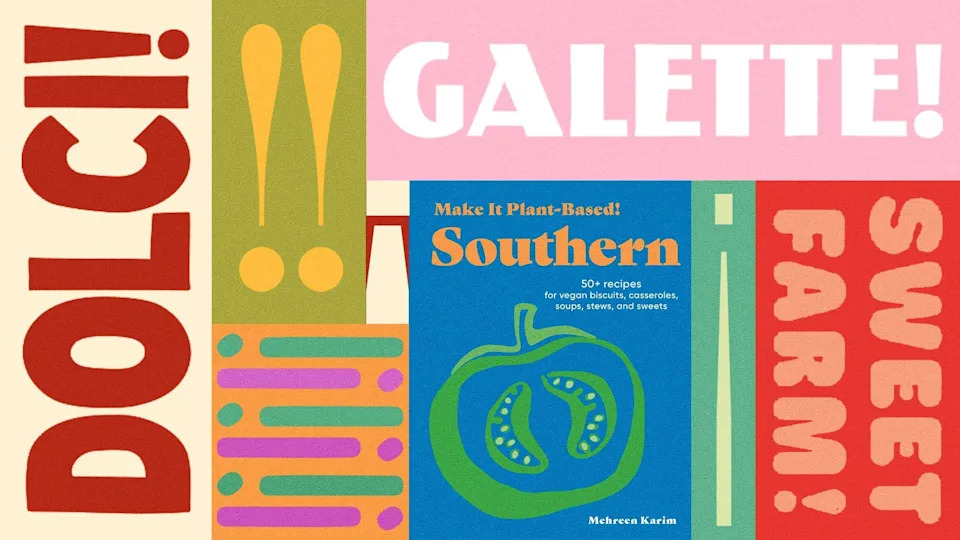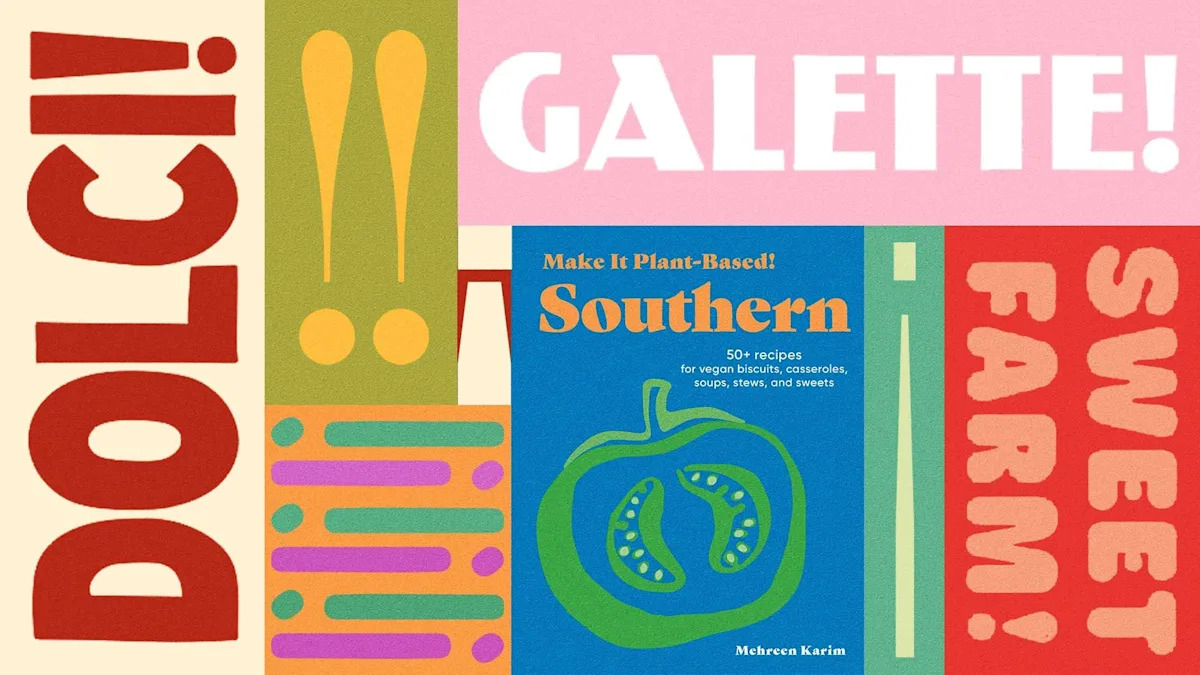All products featured on Epicurious are independently selected by Epicurious editors. However, when you buy something through our retail links, Condé Nast may earn an affiliate commission.

As an editor, there are certain rules (or “no-no’s” as I say) you’re taught to follow: no run-ons, no reps, and certainly no overuse of exclamation points. So when I started to notice the latter popping up in contemporary cookbook titles, I had to unravel the mystery. Why was this effusive punctuation everywhere?
Book by book, the exclamation points appeared: Dolci!, Hot Date!, Sweet Farm!, Cook Korea!, You Got This!, the four Make It Plant-Based! books, Galette!. Maybe it was a clever crutch for single-subject titles? A dose of positive affirmation for statement-making books?
To distill the very essence of an entire 100-something page book into a pithy title is no easy task. “Cookbook titles used to be longer, now they’re probably four words tops. I think it’s because our attention spans as consumers of cookbooks are just totally shot,” says Galette! author Rebecca Firkser. The cover photo and title need to make an instant and lasting impression and convince someone to pick up and buy their book. Firkser explains, “You have to say it quickly, snappily, and in a voicey way.”
Ultimately, Firkser landed on “Galette”—according to her it felt clean, composed, and elegant. But when pitching it to her publisher, they asked, “Is “Galette” interesting enough?”. Firkser went on to have a conversation with a copywriter friend, who suggested adding the exclamation point. “Immediately, I was like that’s it. I don’t really think it brings voice, but you do say it in a different tone of voice, literally. And it conveys a playfulness, a ‘we have fun here’-wink, which feels important to me in a book of pastry that can feel intimidating to people.”
When Simon Element editor in chief Doris Cooper worked on You Got This! with author Diane Morrisey, they felt a similar impetus to preemptively squash any anxiety a reader might have around cooking. Cooper says, “Sometimes there’s a phrase that an author repeats and that’s their trademark. For Diane, ‘You Got This!’ really reflected that spirit of the book and her own experience as a self-taught cook.” The words offer a promise to home cooks that the book will be accessible to them. And the exclamation point? Cooper says, “When I looked at it with just a period at the end, it felt kind of flat. The exclamation signifies exuberance and emphasizes confidence. I really believe that’s how her fans hear her.”
This micro trend may feel like a small blip in the wide world of cookbooks, similar to the ubiquitous “ish” of 2024 (Greekish, Latin-ish, Homemade-ish), which has since slowed remarkably. But it tells us something about the ways in which cookbooks’ tones and spirits have shifted. These books, and the authors creating them, are striving to share something more personal with readers, a distinct voice that signals comfort and showers you with positivity in as few words as possible.
But unless sales rapidly soar (and time will tell), I’d wager publishers will get right back to editing out this punctuation—just as they ordinarily have.
Originally Appeared on Epicurious
